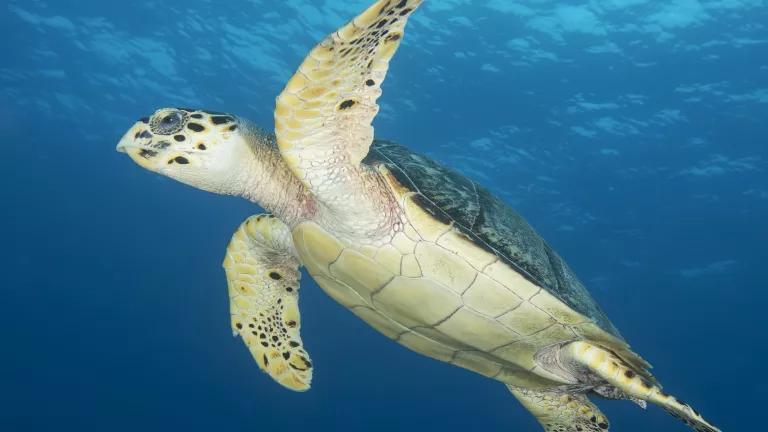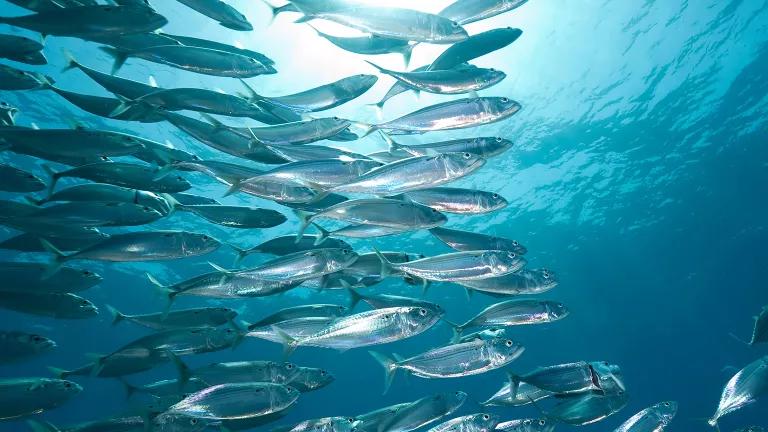Florida Governor Charlie Crist today announced that oil from the Gulf of Mexico oil disaster could hit the western Florida Panhandle "in a day or two." Less clear remains our understanding of the fate of any oil that enters the powerful Loop Current. This fast moving current can circulate water around Florida and up the Atlantic Coast via the Gulf Stream. Needless to say, the Loop Current has the potential to vastly expand the environmental and economic impacts of the spill.
The impacts to Florida’s economy will depend on how much oil hits the shores and moves through the current and what form it’s in. But we do know that the impact to Florida’s valuable ocean resources could be significant. If the oil reaches Florida it would be devastating for its:
TOURISM AND RECREATION INDUSTRY:
- In 2004, Florida’s ocean sector industries contributed more than $27.4 billion to the state’s gross domestic product (GDP). The largest single ocean sector business contributing to Florida’s GDP is tourism and recreation. In 2004, tourism and recreation alone contributed almost $18.6 billion to the state’s GDP, nearly 68 percent of the total ocean sector industries’ contribution. In 2008, VISIT FLORIDA documented 84.2 million visitors who spent over $65 billion and supported more than 1 million persons directly employed by Florida’s tourism industry.
- In 2006, more than 3 million people participated in bird watching in Florida; Florida wildlife watchers in general spent more than $3 billion on expenditures (e.g., equipment purchases like binoculars and cameras).
- At least two studies have estimated the economic value of a single beach day enjoyed on Florida’s shores to be between $19 and $74 per beach day.
FISHING INDUSTRY:
- A 2008 report by the National Marine Fisheries Service found that the commercial fishing industry in Florida generated nearly $5.7 billion in sales and more than $3.1 billion in income.
- In 2008, western Florida experienced the greatest economic boost from recreational fishing of the Gulf states (Alabama, West Florida, Louisiana, Mississippi, and Texas): expenditures from recreational anglers in western Florida generated $5.65 billion in total sales to the regional economy and added approximately 54,600 jobs. On the East Coast of Florida, expenditures from recreational anglers generated more than $4 billion in total sales to the regional economy and added more than 35,000 jobs.
Fishing, wildlife watching, tourism, and so many other ocean uses depend on healthy ocean and coastal ecosystems. When those systems are degraded because of water pollution, habitat loss, destructive fishing practices and other human impacts, the economy suffers.
BP has announced tourism grants to several Gulf states – including Florida – but the financial impacts may very well eclipse the marketing dollars they are making available. A true assessment of the various losses will take time, and in the meantime we can only hope that the Gulf well is plugged soon and we can start recovering from this disaster.
We also need to impose a moratorium on all new oil activities offshore – not simply deepwater drilling – until an independent investigation is held to assess the causes of the current spill, how such spills can be avoided in the future, the adequacy of containment and clean-up measures for spills generally, and the implications of these findings for drilling in, or adjacent to sensitive or ecologically important areas. The moratorium should not be lifted before the investigation has been completed and the commission’s recommendations have been acted on. It is critically important that we learn from this spill and protect our valuable coastal and ocean resources for the future.



